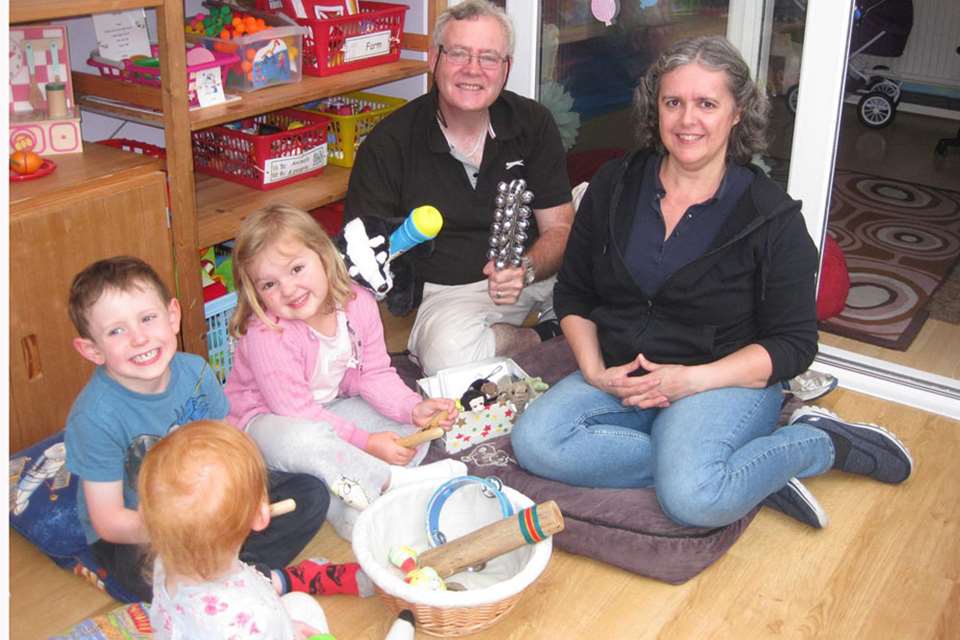Nursery Management exclusive: Childminding - Counting the cost
Charlotte Goddard
Monday, September 21, 2015
The impact of underfunding of the free entitlement for childminders has been revealed - with two thirds making a loss. Charlotte Goddard reports.

Childminders across the country are making such a loss on delivering the free entitlement they are not even paying themselves the minimum wage, a Nursery World investigation has found.
In a survey of 430 childminders, 84 per cent said taking funded three and four-year-olds means their income dips below the statutory minimum of £6.50 per hour.
Almost two-thirds (65 per cent) of respondents said they currently offer 15 hours of funded places - taking an average of 2.7 funded three and four-year-olds each. But nearly 70 per cent of these said they made a loss.
As a result, 88 per cent said they were either 'not sure' about taking, or 'not' going to take, three and four-year-olds when the free entitlement scheme extends to 30 hours per week. More than half (51 per cent) of those who do not currently offer funded places say it is because they cannot afford to.
One survey respondent said they did not offer funded three and four-year-old children places 'because I cannot allow my business to become unsustainable'. 'The funding has remained at £3.50 for more than 10 years,' they said.
Another said it was a case of 'too much shortfall in income, burdensome admin required, unreliable local authority payments, and awkward to spread (the funded hours) over a whole year to meet the needs of parents'.
The funding shortfall for full daycare providers in private, voluntary and independent settings is well documented, but this survey provides evidence of the extent of three and four-year-old underfunding for childminders, about 6,000 of whom currently offer the free hours across the country. With under- funded nursery owners saying they are concerned about their capacity to expand to meet the demands of 30 hours, childminders could be expected to step into the breach.
Liz Bayram, chief executive of PACEY, says that many local authorities, which pass on varying rates of money to childminders, were driven solely by their own costs and 'the issues with minimum and living wage are still not on their radar'.
She says, 'For very many childminders, delivering the free entitlement means they can't secure the minimum wage. That is why so many childminders aren't delivering it.
'And then minimum wage is soon to become the living wage and make it even more challenging.
'If the Government wants to grow the number of places to 30 hours, it has to understand that means it has to provide a market rate for the area.'
She adds that while underfunding tends to be more of an issue in the south of the country, it is still the case that 'many registered childminders do not make a profit'.
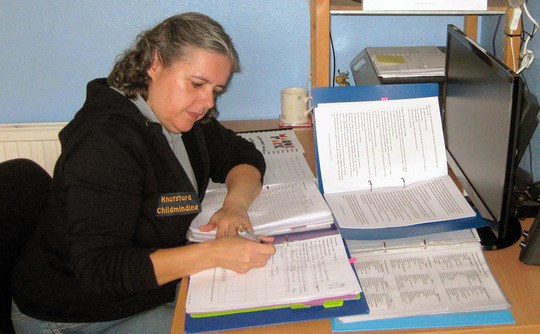
The gaps
In total, 204 childminders told us their average loss per hour on funded children, which averaged at £1.31.
The scope of the funding shortfall varies across the country, depending on the rate paid by the local authority, the local market rate, and whether the childminder offers 'extras' such as food. Just over half (52 per cent) of childminders said they were losing between 25p and 75p per hour. The highest hourly shortfall was £3.
The majority (74 per cent) of childminders receive £4 or less from their local authority per funded three and four-year-old. Just 25 per cent of local authorities pay £4 an hour or more.
But 64 per cent of childminders said their fees were above £4. 'In Cheshire East, normal fees are around £4 to £5, but the funding base rate is £3.25, so childminders are losing a pound an hour,' says Sarah Neville of Knutsford Childminding. The council's cabinet documents show this base rate was last increased in 2010, by 5p.
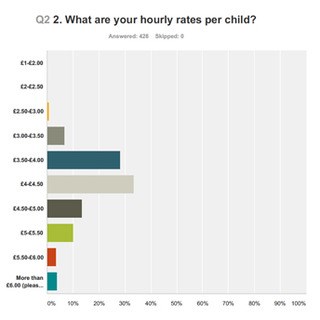
Some local authorities pay nurseries more than childminders for funded hours, meaning the situation is exacerbated for childminders who lose money over more children. Unlike nurseries, a single childmin- der can only look after six children under the age of eight. 'Childminders have limited places and therefore cannot make up any shortfall by increasing the number of children in their care,' points out Bea Heath, director of trade association Independent Childminders.
One method to make childminders' businesses more sustainable could be to expand. But such low wages can make this difficult as many childminders, who say they are not earning the minimum wage themselves, say they can't afford to pay the minimum wage to an assistant, let alone the new 'national living wage' (NLW) of £7.20 an hour, due to come into force from April.
One childminder from Staffordshire, who loses about a pound an hour on funded children, says she pays her assistant minimum wage, and pays herself just £150 a week. 'My problem is the fact that if I take three and four-year-olds I need all three 15-hour places filled, as I have to pay my assistant. Two places for this age group just covers the hourly rate - I need the third for extra resources, playgroup fees and so on. When the minimum wage goes up to the NLW and the children are with me for 30 hours, I will be making a big loss. I would still do it, but I would take more two-year-olds because the rate of funding is higher.'
Childminders sometimes find funded children only attend for the 'free' hours, making it difficult to fill the gaps. One registered childmin- der in the Birmingham area says, 'I live in a disadvantaged area, so my rate is actually only 7p less than the funded rate. But I have one funded child who I look after from 11.45am to 2.45pm every day - there is nothing I can do with that place before or after that time, so that is where I am losing out.'
Not all childminders who choose not to take the funded three and four-year-olds do so because of cost. One survey respondent said, 'This is an age range which I feel is better suited to a maintained nursery setting: I feel that my practice is better targeted at two-year-olds.'
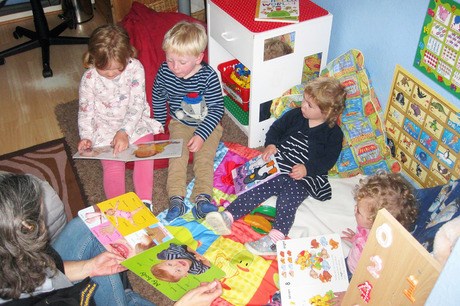
On the 30 hours
When the Government extends the free entitlement to 30 hours, some childminders fear that this might increase their loss still further, although others say that at least it will decrease the 'floating hours' left after the 15 free hours have been used up. Nursery World's survey found that:
- Only 12 per cent of childminders are definitely planning to take funded three and four-year-olds for 30 hours a week.
- 30 per cent said they definitely would not take these children, and 58 per cent said they were not sure.
- Affordability is the key issue - of the 88 per cent saying no or not sure, 22 per cent said this was because they definitely would not be able to afford it, and 56 per cent said they were seriously concerned that they would not be able to afford it.
Rick Knight, a childminder in Wiltshire, says he will not be offering funded places, except to children he is already minding when they turn three, because his local authority is planning to halve the rates. 'The current rate is £6.50, but that is dropping to £3.81 an hour next year,' he says. 'Nearly every childminder I have spoken to has said they are not going to offer funded hours, especially when the 30 hours kicks in.'
Childminders would like to see the funding rate more closely aligned with the rate offered for two-year-olds, which they say is nearer to meeting their costs. Things are particularly tough, they say, when funded two-year-olds, who may have particular support needs, turn three. 'They are the same children with all the same attendant issues, but when they turn three the rate falls from just under £5 to £3.25 an hour,' says Ms Neville.
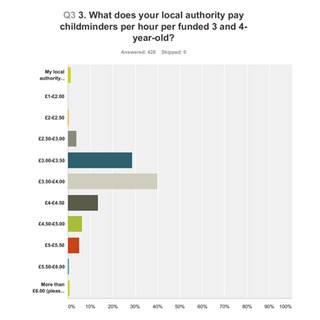
The Department for Education (DfE) says it sees childminders as 'an essential part' of the childcare mix. 'We have changed the rules and provided start-up funding to make it easier for registered childminders to provide the free hours, and the number doing so has increased steadily since 2011,' says a spokesperson. However, delayed payments from local authorities and red tape are a big issue. According to one survey respondent: 'I have four funded children starting in September, but I won't get money for them until the end of October, so will struggle to pay September and October's bills, so need to have some hours that are not funded.'
The Government is keen to professionalise childminders. The registration system has been strengthened, and Ofsted says these changes have driven up the quality of childminding. The problem, according to Ms Bayram, is that childminders aren't recognised as professionals. 'They are required to meet the same standards as nurseries through the Early Years Foundation Stage; Ofsted data says they are the same high quality, but they are seen as the poor cousins in childcare. Many health visitors assume that early education is in a nursery. We are doing lots of work with the Institute of Health Visiting to be sure they understand all that's out there.'
The Government last month completed a review of free entitlement funding, and while we don't yet know the result, employment minister Priti Patel has confirmed that funding rates will be increased. A DfE spokesperson says, 'We have committed to raising the average hourly rate childcare providers receive - a move that has been welcomed by the industry - and are undertaking a review of childcare costs to set a new average hourly rate that is fair for providers and delivers value for money for the taxpayer. We are considering the new NLW as part of this work.'
Childminders are pinning their hopes on this review, although many are not convinced that it will be the answer to everything. 'We hope that the Government is really going to tackle this gap in funding and not as a one-off but as a process that keeps the rate under review,' says Ms Bayram. 'Even once the Government says this is the money you get for the free entitlement, then there is a bunfight as to how it is spent locally. There need to be changes at the school forum level (bodies that decide how Government money is spent locally on education) to ensure the budget recommendations go through.'
Our survey was conducted as an open invitation to all childminders. In total, 428 childminders responded. Questions were devised by Nursery World with help from Sarah Neville of Knutsford Childminding.


